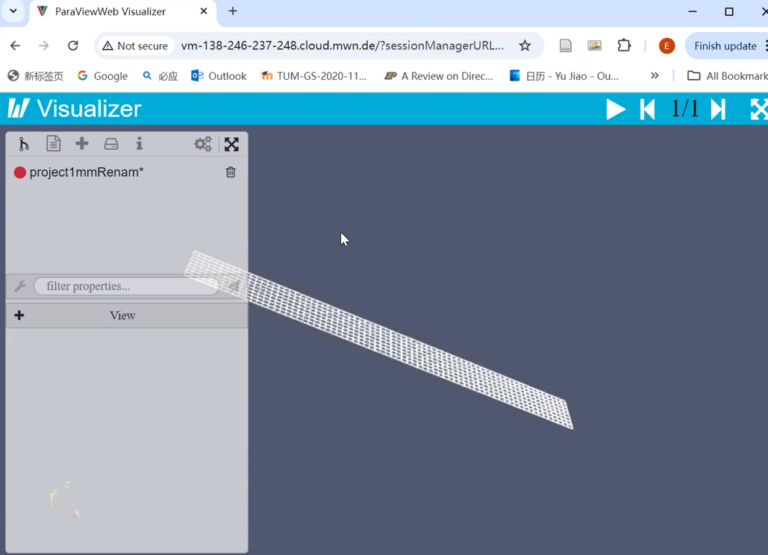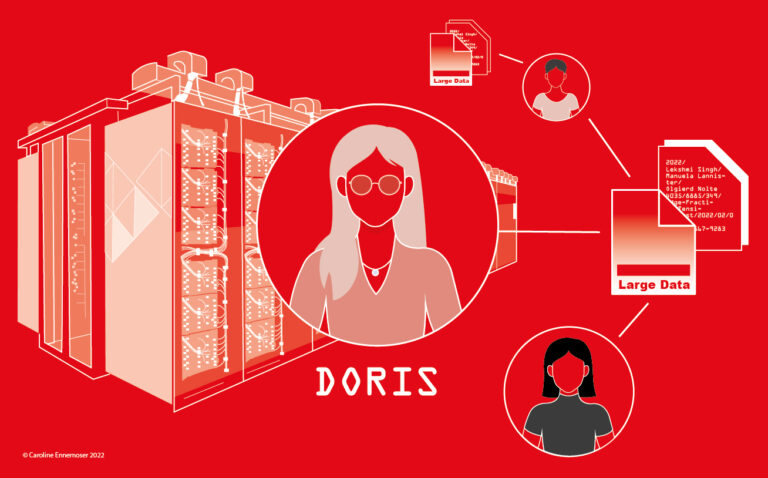Logo
Detailed description of the service
Data from High-Performance Computing (HPC) and High-Performance Measurement is often stored in personal (project) accounts at the computing centers and is often immobile due to its size. Access to the data or further use was previously not possible without an explicit request to the computing centers. Tier 0 systems in general can only be accessed after submitting a project application.
In high-performance computing, dealing with vast amounts of data, often in the range of several terabytes, is not uncommon, posing a challenge as it exceeds the storage capacity of typical consumer electronic hard drives. Furthermore, sharing such substantial datasets becomes a formidable task. To address this issue, we have devised a cloud-based solution leveraging the LRZ Compute Cloud to facilitate access to data stored in the LRZ DSS.
We’ve developed a tool specifically designed for LRZ users, enabling them to grant external users, who may not have an LRZ account, access to their data through the compute cloud. External users obtain access to the cloud and establish a connection to specific data stored at the LRZ. In this arrangement, external users have read-only access to the data, allowing them to execute or develop their own analysis tools within the cloud. They can assess the shared data, perform analyses, and subsequently download the results they obtain. This advancement significantly enhances the ability to share extensive datasets among research colleagues.
The cloud server system enables research data generated at the Leibniz Supercomputing Centers (LRZ) to be made available to external parties. Access can be set up individually via a virtual machine or microservice. Thanks to the direct integration into the data storage infrastructure of the computing centers, both “hot” and “cold” HPC research data can be accessed. It is also possible to analyze the data on the virtual machine.
Terms of use & restrictions
Users must agree to the LRZ’s terms of use: https://doku.lrz.de/compute-cloud-10333232.html
Embedding in DFN-AAI is intended, in which case the corresponding terms of use apply: https://doku.tid.dfn.de/de:dfnaai:start
Contact
References
publications that reference (or report on using) the service
Reference on Service: Christof Bless, Ildar Baimuratov, and Oliver Karras: SciKGTeX – A LaTeX Package to Semantically Annotate Contributions in Scientific Publications.In: 2023 ACM/IEEE Joint Conference on Digital Libraries (JCDL), IEEE, 2023, https://dx.doi.org/10.1109/JCDL57899.2023.00030
Reference on Use: Christof Bless, I. Baimuratov, and O. Karras: SciKGTeX – Scientific Knowledge Graph TeX, Computer software, https://github.com/Christof93/SciKGTeX
Reference on Use: O. Karras, A. Ferrari, D. Fucci, and D. Dell’Anna: Supplementary Materials of the Tutorial: “Promotion of Open Science in Requirements Engineering – Leveraging the Open Research Knowledge Graph for FAIR Scientific Information” (1.1), 32nd IEEE International Requirements Engineering Conference 2024 (RE’24), Reykjavik, Iceland. Zenodo, 2023. https://doi.org/10.5281/zenodo.12518069
#WhyNFDI
Bring the user to the data
Miscellaneous


